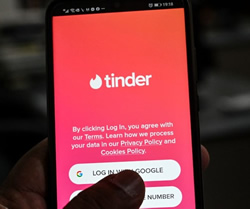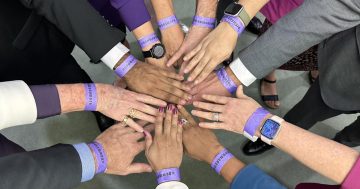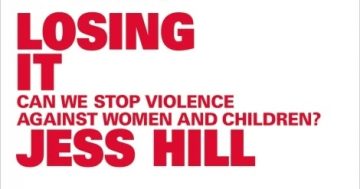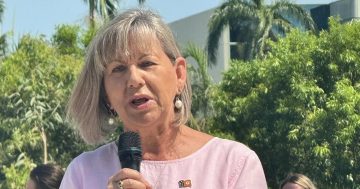Leah Dwyer* says big tech needs to join the conversations to make dating apps safer.
 Online dating apps have become an integral part of human connection in the digital age.
Online dating apps have become an integral part of human connection in the digital age.
For many it’s a convenient way to connect, have fun and fall in love.
Like traditional dating you have bad dates, mortifying message exchanges after refreshing yourself at the local with your friends.
It seems easy and a good way to find you person.
There is a darker experience of online dating, though.
Research from Australian Institute of Criminology showed three out of four participants in the study had been exposed to sexual violence, facilitated through a dating application.
It also showcases the attitudes that are prevalent in society towards women and girls and the behaviours that are commonly experienced by them online, and the gendered impacts that has on women’s participation in the digital realm.
In response to the rise of sexual violence, and concerns from the eSafety Commission, Minister for Communications Michelle Rowland MP set up a National Round table bringing together; government, civil society and tech to talk about the current issues in Australia and understand what solutions and opportunities for change exist in an Australian legal and cultural context.
There will be no singular linear solution, violence against women is a wicked social policy issue and dating apps are one niche aspect makes up a broader communications eco system.
The intersection between different communities and people’s perceptions of personal safety also needs to be taken into consideration.
The usability of these applications can make it easier to find matches on other platforms; Tinder offers a Facebook login which can lead to your facebook profile showing up as a suggested friend option to people who you’ve matched with on Tinder (who also use facebook as a sign in option).
There’s certainly a safety concern there.
Similarly, other app engagement strategies encourage and incentivise linking to personal social media accounts, as access to that data set is incredibly valuable for further marketing purpose.
For this reason we need big tech to join the discussion.
Addressing the problem at one point won’t necessarily address the problem elsewhere, but designing a best practice national standard for dating apps hopefully will lead to transforming the overall communications safety standard.
This round table is great start in what needs to be a detailed discussion between key stake holders and most crucially understanding the breadth of user experience.
The ways someone can use a dating app to harass or exert violence on another person is very dynamic and comprehensive, including both online and face-to-face abuse, pressure to send material, extortion, digital stalking, physical stalking, online facilitated child abuse, manipulation of users who have children to access their children.
There are a wide net of opportunities for perpetrators, so it can look different depending on the complainant’s experience.
Addressing dating app safety is multi-faceted, especially as it’s common for people to move off the dating app itself quickly.
We need to explore opportunities to bridge the gap between different platforms – for example, consider a couple moving their initial match and conversation from Tinder onto WhatsApp.
How will they stay safe? It would help understand common behaviours when moving between platforms and risks that are then introduced along with potentially mapping perpetrator behaviour.
Some “safety features” might actually have the opposite effect.
For example, identity verification has the potential to inadvertently jeopardise the safety of some users with LGBTIQ+ status who are not ready to disclose.
Identity verification also isn’t a compulsory feature of dating apps.
The domestic, family and sexual violence sector is calling for mandatory ID checks, but this needs to be a collaborative piece of work examining impacts on varying communities.
Current ID verification is voluntary and it’s been shown that some of the verification systems can be ‘’gamed’’, so perpetrators could effectively pose as someone else using a profile of photos that have otherwise been ‘verified’ as a means to disarm someone into thinking they are someone else or doxing and harassing their ex-partner by posing as them in a dating site.
This is commonly known as catfishing, there is limited formal research into impacts on victims often due to the shame carried by the victims.
Catfishing became vernacular in popular culture after artist Nev Schulman made a documentary detailing his experience with being catfished by a woman named Angela.
It transpired the practice was disturbingly commonplace the documentary became a show on MTV with 8 series and spinoff specifically looking at predator trolling.
Viewers are able to write in their suspicions and get help in confronting their “catfish”.
This is a double-edged situation has the acceptance of this behaviour as a cultural norm in this kind of communication, meant that we have lowered our tolerance threshold towards the damaging behaviour experienced online?
The rise of informal peer support pages in social media, shows that people who have experienced abuse – be it unwanted sexual images, explicit conversation or harassment – are looking for an outlet to share their experiences and gain support from peers.
Pages like Bye Felipe, Tinder translators and Beam Me up Softboi invite followers to send in Direct Message exchanges, dating profiles highlighting unacceptable online behaviour.
The submissions range from ridiculous to terrifying.
All submissions are deidentified and one assumes that formal outcomes haven’t been sought.
These peer supports need to be taken into consideration when designing policy solution.
The role they play in people unpacking negative experience and behaviours they have been exposed to.
This is an issue we need to address from multiple angles.
There have long been calls for mandatory police/criminal record checks – this has become especially pronounced in the wake of the recent murder of Danielle Finlay-Jones, whose death could have been prevented through this mechanism.
However, we must also recognise that the vast majority of perpetrators who exist in our society are unlikely to have a criminal history.
For this reason, we need to work alongside industry to develop ways to disrupt ALL abuse.
Along with developing a deeper understanding of who these perpetrators are and how they are using digital tools like dating apps to advance their agenda.
*Leah Dwyer, Director Of Policy and Advocacy at YWCA Canberra and Hannah Robertson, PhD Candidate at the ANU
This article first appeared at broadagenda.com.au











